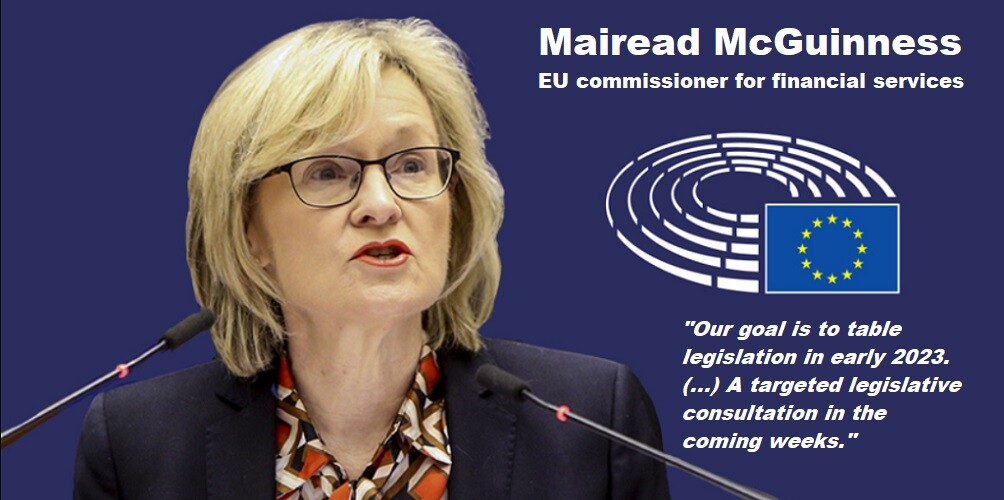The legislative process is timed in lockstep with the European Central Bank’s in-house experiments on virtual currency.
The European Commission announced Wednesday it’s planning to propose a bill for a digital euro early next year, according to POLITICO.
The bill will serve as the legal foundation for the European Central Bank’s ongoing technical work on the virtual version of a euro banknote or coin.
The ECB is currently carrying out in-house experiments with the digital euro and expects to start working on a prototype at the end of 2023. Eurozone governors will then decide whether minting a digital euro is worth the trouble. If they do, the virtual currency could be ready by 2025 — at the earliest.
That timetable works fine for the EU’s legislative process. The bill will have to go through negotiations within EU capitals and Parliament before it can become law.
A public consultation is set to emerge from the EU’s executive arm next month. The consultation won’t replicate the ECB’s call for comment from 2020, which found payment privacy was the top concern among respondents. The Commission’s questionnaire will instead focus on how the digital euro could be used, such as handling everyday payments.
EU finance chief Mairead McGuinness announced the Commission’s legislative plans Wednesday morning at a fintech conference by Afore Consulting, soon after POLITICO had confirmed the news.
„Our goal is to table legislation in early 2023,” the EU commissioner on financial services said. „A targeted legislative consultation in the coming weeks.”
